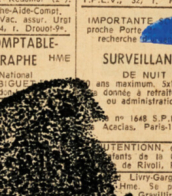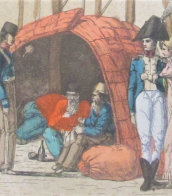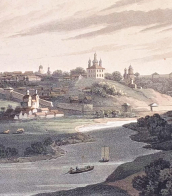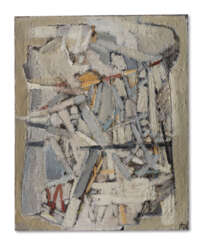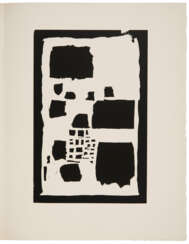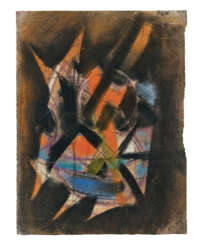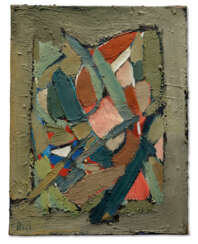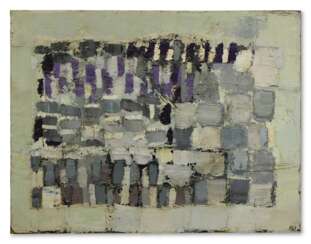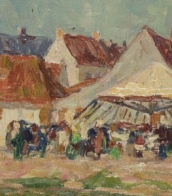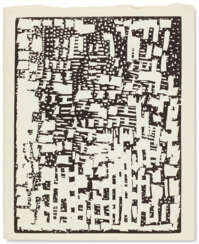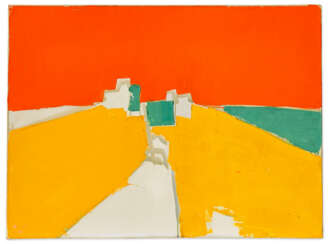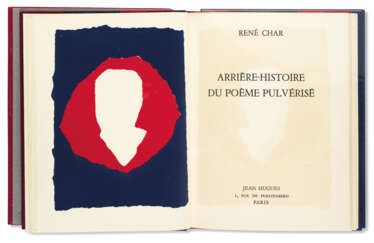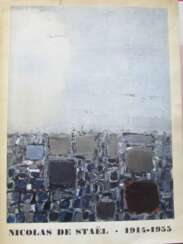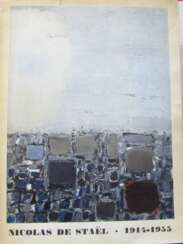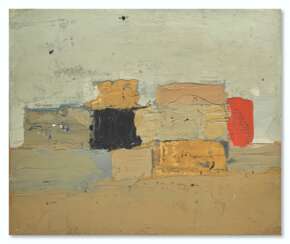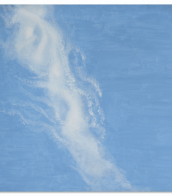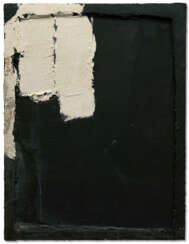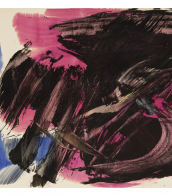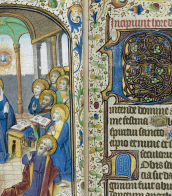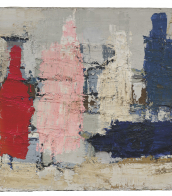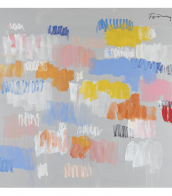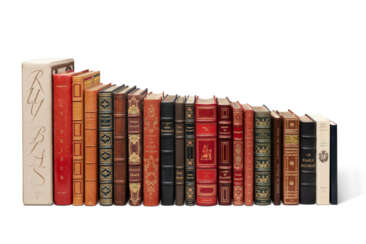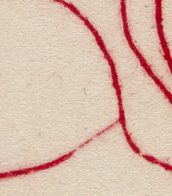nicolas de staël (1914 - 1955)
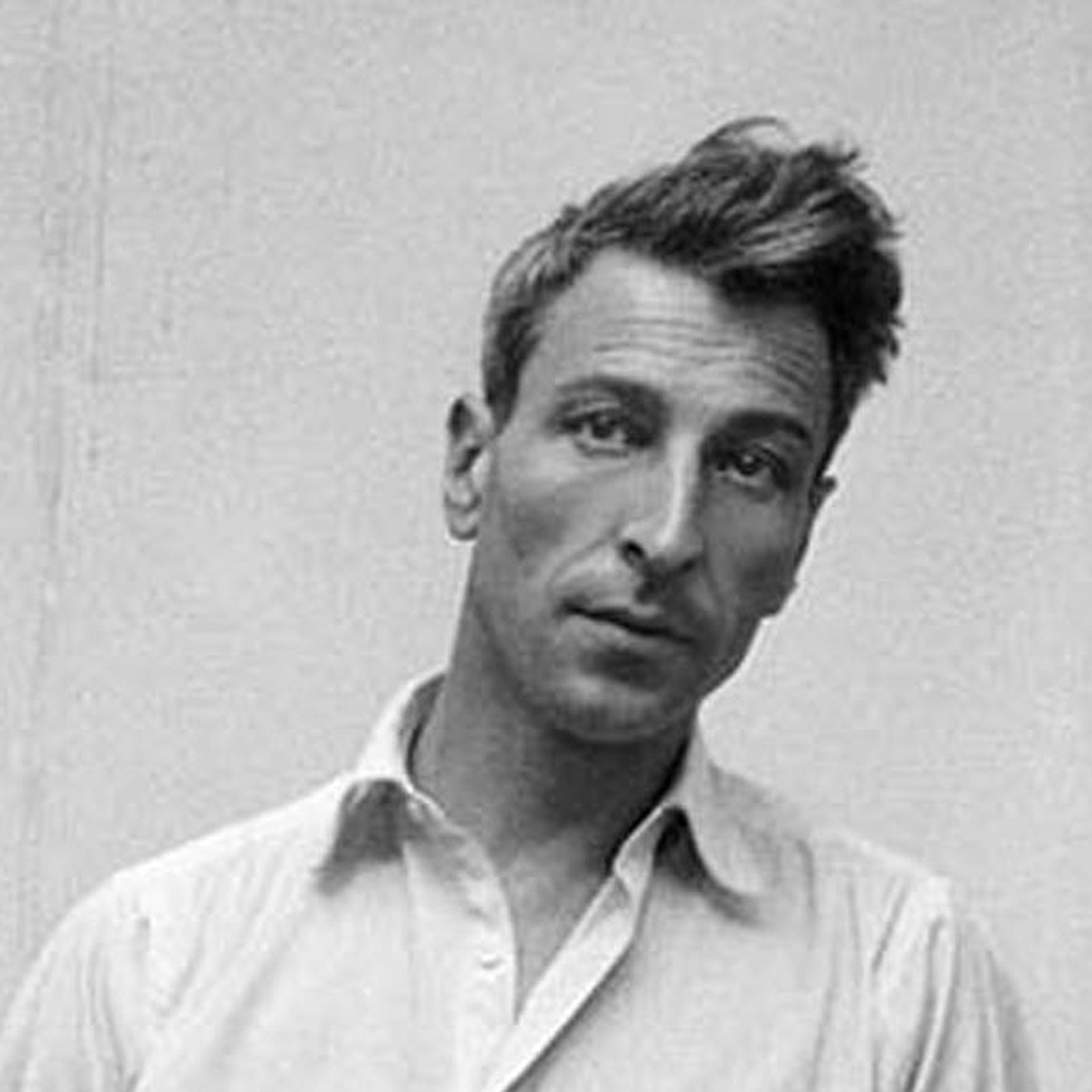
Nicolas de Staël was a Russian-born French artist known for his abstract and figurative paintings. He was born in 1914 in St. Petersburg, Russia and grew up in a wealthy family. In 1919, his family fled Russia and settled in Poland before eventually moving to Brussels, Belgium.
De Staël began studying painting at the Académie Royale des Beaux-Arts in Brussels in 1932. After several years of studying and traveling, he settled in Paris in 1938, where he became associated with the group of artists known as the School of Paris.
During the 1940s and 1950s, de Staël developed a distinctive style that blended elements of abstraction and figuration. He used a palette knife and bold, thick brushstrokes to create abstract landscapes and seascapes that were often inspired by his travels to the south of France and the Mediterranean.
In the early 1950s, de Staël began to incorporate figurative elements into his work, creating portraits and still lifes that were characterized by their simplified forms and bold colors. He also experimented with different mediums, including lithography and stained glass.
De Staël's work was well-received by critics and collectors during his lifetime, and he participated in numerous exhibitions in France and internationally. However, he struggled with depression and committed suicide. His legacy has continued to inspire artists and art lovers around the world, and his paintings are held in the collections of major museums, including the Centre Georges Pompidou in Paris and the Museum of Modern Art in New York.
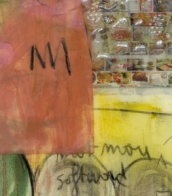

Nicolas de Staël was a Russian-born French artist known for his abstract and figurative paintings. He was born in 1914 in St. Petersburg, Russia and grew up in a wealthy family. In 1919, his family fled Russia and settled in Poland before eventually moving to Brussels, Belgium.
De Staël began studying painting at the Académie Royale des Beaux-Arts in Brussels in 1932. After several years of studying and traveling, he settled in Paris in 1938, where he became associated with the group of artists known as the School of Paris.
During the 1940s and 1950s, de Staël developed a distinctive style that blended elements of abstraction and figuration. He used a palette knife and bold, thick brushstrokes to create abstract landscapes and seascapes that were often inspired by his travels to the south of France and the Mediterranean.
In the early 1950s, de Staël began to incorporate figurative elements into his work, creating portraits and still lifes that were characterized by their simplified forms and bold colors. He also experimented with different mediums, including lithography and stained glass.
De Staël's work was well-received by critics and collectors during his lifetime, and he participated in numerous exhibitions in France and internationally. However, he struggled with depression and committed suicide. His legacy has continued to inspire artists and art lovers around the world, and his paintings are held in the collections of major museums, including the Centre Georges Pompidou in Paris and the Museum of Modern Art in New York.
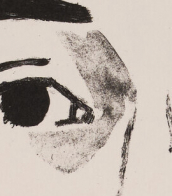

Nicolas de Staël was a Russian-born French artist known for his abstract and figurative paintings. He was born in 1914 in St. Petersburg, Russia and grew up in a wealthy family. In 1919, his family fled Russia and settled in Poland before eventually moving to Brussels, Belgium.
De Staël began studying painting at the Académie Royale des Beaux-Arts in Brussels in 1932. After several years of studying and traveling, he settled in Paris in 1938, where he became associated with the group of artists known as the School of Paris.
During the 1940s and 1950s, de Staël developed a distinctive style that blended elements of abstraction and figuration. He used a palette knife and bold, thick brushstrokes to create abstract landscapes and seascapes that were often inspired by his travels to the south of France and the Mediterranean.
In the early 1950s, de Staël began to incorporate figurative elements into his work, creating portraits and still lifes that were characterized by their simplified forms and bold colors. He also experimented with different mediums, including lithography and stained glass.
De Staël's work was well-received by critics and collectors during his lifetime, and he participated in numerous exhibitions in France and internationally. However, he struggled with depression and committed suicide. His legacy has continued to inspire artists and art lovers around the world, and his paintings are held in the collections of major museums, including the Centre Georges Pompidou in Paris and the Museum of Modern Art in New York.
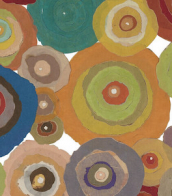

Nicolas de Staël was a Russian-born French artist known for his abstract and figurative paintings. He was born in 1914 in St. Petersburg, Russia and grew up in a wealthy family. In 1919, his family fled Russia and settled in Poland before eventually moving to Brussels, Belgium.
De Staël began studying painting at the Académie Royale des Beaux-Arts in Brussels in 1932. After several years of studying and traveling, he settled in Paris in 1938, where he became associated with the group of artists known as the School of Paris.
During the 1940s and 1950s, de Staël developed a distinctive style that blended elements of abstraction and figuration. He used a palette knife and bold, thick brushstrokes to create abstract landscapes and seascapes that were often inspired by his travels to the south of France and the Mediterranean.
In the early 1950s, de Staël began to incorporate figurative elements into his work, creating portraits and still lifes that were characterized by their simplified forms and bold colors. He also experimented with different mediums, including lithography and stained glass.
De Staël's work was well-received by critics and collectors during his lifetime, and he participated in numerous exhibitions in France and internationally. However, he struggled with depression and committed suicide. His legacy has continued to inspire artists and art lovers around the world, and his paintings are held in the collections of major museums, including the Centre Georges Pompidou in Paris and the Museum of Modern Art in New York.
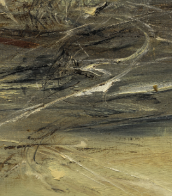

Nicolas de Staël was a Russian-born French artist known for his abstract and figurative paintings. He was born in 1914 in St. Petersburg, Russia and grew up in a wealthy family. In 1919, his family fled Russia and settled in Poland before eventually moving to Brussels, Belgium.
De Staël began studying painting at the Académie Royale des Beaux-Arts in Brussels in 1932. After several years of studying and traveling, he settled in Paris in 1938, where he became associated with the group of artists known as the School of Paris.
During the 1940s and 1950s, de Staël developed a distinctive style that blended elements of abstraction and figuration. He used a palette knife and bold, thick brushstrokes to create abstract landscapes and seascapes that were often inspired by his travels to the south of France and the Mediterranean.
In the early 1950s, de Staël began to incorporate figurative elements into his work, creating portraits and still lifes that were characterized by their simplified forms and bold colors. He also experimented with different mediums, including lithography and stained glass.
De Staël's work was well-received by critics and collectors during his lifetime, and he participated in numerous exhibitions in France and internationally. However, he struggled with depression and committed suicide. His legacy has continued to inspire artists and art lovers around the world, and his paintings are held in the collections of major museums, including the Centre Georges Pompidou in Paris and the Museum of Modern Art in New York.
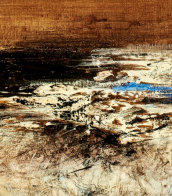

Nicolas de Staël was a Russian-born French artist known for his abstract and figurative paintings. He was born in 1914 in St. Petersburg, Russia and grew up in a wealthy family. In 1919, his family fled Russia and settled in Poland before eventually moving to Brussels, Belgium.
De Staël began studying painting at the Académie Royale des Beaux-Arts in Brussels in 1932. After several years of studying and traveling, he settled in Paris in 1938, where he became associated with the group of artists known as the School of Paris.
During the 1940s and 1950s, de Staël developed a distinctive style that blended elements of abstraction and figuration. He used a palette knife and bold, thick brushstrokes to create abstract landscapes and seascapes that were often inspired by his travels to the south of France and the Mediterranean.
In the early 1950s, de Staël began to incorporate figurative elements into his work, creating portraits and still lifes that were characterized by their simplified forms and bold colors. He also experimented with different mediums, including lithography and stained glass.
De Staël's work was well-received by critics and collectors during his lifetime, and he participated in numerous exhibitions in France and internationally. However, he struggled with depression and committed suicide. His legacy has continued to inspire artists and art lovers around the world, and his paintings are held in the collections of major museums, including the Centre Georges Pompidou in Paris and the Museum of Modern Art in New York.
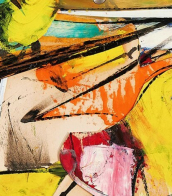

Nicolas de Staël was a Russian-born French artist known for his abstract and figurative paintings. He was born in 1914 in St. Petersburg, Russia and grew up in a wealthy family. In 1919, his family fled Russia and settled in Poland before eventually moving to Brussels, Belgium.
De Staël began studying painting at the Académie Royale des Beaux-Arts in Brussels in 1932. After several years of studying and traveling, he settled in Paris in 1938, where he became associated with the group of artists known as the School of Paris.
During the 1940s and 1950s, de Staël developed a distinctive style that blended elements of abstraction and figuration. He used a palette knife and bold, thick brushstrokes to create abstract landscapes and seascapes that were often inspired by his travels to the south of France and the Mediterranean.
In the early 1950s, de Staël began to incorporate figurative elements into his work, creating portraits and still lifes that were characterized by their simplified forms and bold colors. He also experimented with different mediums, including lithography and stained glass.
De Staël's work was well-received by critics and collectors during his lifetime, and he participated in numerous exhibitions in France and internationally. However, he struggled with depression and committed suicide. His legacy has continued to inspire artists and art lovers around the world, and his paintings are held in the collections of major museums, including the Centre Georges Pompidou in Paris and the Museum of Modern Art in New York.
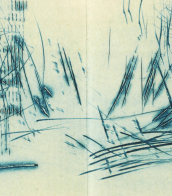

Nicolas de Staël was a Russian-born French artist known for his abstract and figurative paintings. He was born in 1914 in St. Petersburg, Russia and grew up in a wealthy family. In 1919, his family fled Russia and settled in Poland before eventually moving to Brussels, Belgium.
De Staël began studying painting at the Académie Royale des Beaux-Arts in Brussels in 1932. After several years of studying and traveling, he settled in Paris in 1938, where he became associated with the group of artists known as the School of Paris.
During the 1940s and 1950s, de Staël developed a distinctive style that blended elements of abstraction and figuration. He used a palette knife and bold, thick brushstrokes to create abstract landscapes and seascapes that were often inspired by his travels to the south of France and the Mediterranean.
In the early 1950s, de Staël began to incorporate figurative elements into his work, creating portraits and still lifes that were characterized by their simplified forms and bold colors. He also experimented with different mediums, including lithography and stained glass.
De Staël's work was well-received by critics and collectors during his lifetime, and he participated in numerous exhibitions in France and internationally. However, he struggled with depression and committed suicide. His legacy has continued to inspire artists and art lovers around the world, and his paintings are held in the collections of major museums, including the Centre Georges Pompidou in Paris and the Museum of Modern Art in New York.
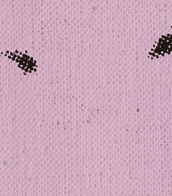

Nicolas de Staël was a Russian-born French artist known for his abstract and figurative paintings. He was born in 1914 in St. Petersburg, Russia and grew up in a wealthy family. In 1919, his family fled Russia and settled in Poland before eventually moving to Brussels, Belgium.
De Staël began studying painting at the Académie Royale des Beaux-Arts in Brussels in 1932. After several years of studying and traveling, he settled in Paris in 1938, where he became associated with the group of artists known as the School of Paris.
During the 1940s and 1950s, de Staël developed a distinctive style that blended elements of abstraction and figuration. He used a palette knife and bold, thick brushstrokes to create abstract landscapes and seascapes that were often inspired by his travels to the south of France and the Mediterranean.
In the early 1950s, de Staël began to incorporate figurative elements into his work, creating portraits and still lifes that were characterized by their simplified forms and bold colors. He also experimented with different mediums, including lithography and stained glass.
De Staël's work was well-received by critics and collectors during his lifetime, and he participated in numerous exhibitions in France and internationally. However, he struggled with depression and committed suicide. His legacy has continued to inspire artists and art lovers around the world, and his paintings are held in the collections of major museums, including the Centre Georges Pompidou in Paris and the Museum of Modern Art in New York.
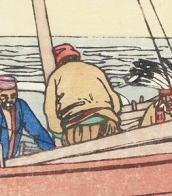

Nicolas de Staël was a Russian-born French artist known for his abstract and figurative paintings. He was born in 1914 in St. Petersburg, Russia and grew up in a wealthy family. In 1919, his family fled Russia and settled in Poland before eventually moving to Brussels, Belgium.
De Staël began studying painting at the Académie Royale des Beaux-Arts in Brussels in 1932. After several years of studying and traveling, he settled in Paris in 1938, where he became associated with the group of artists known as the School of Paris.
During the 1940s and 1950s, de Staël developed a distinctive style that blended elements of abstraction and figuration. He used a palette knife and bold, thick brushstrokes to create abstract landscapes and seascapes that were often inspired by his travels to the south of France and the Mediterranean.
In the early 1950s, de Staël began to incorporate figurative elements into his work, creating portraits and still lifes that were characterized by their simplified forms and bold colors. He also experimented with different mediums, including lithography and stained glass.
De Staël's work was well-received by critics and collectors during his lifetime, and he participated in numerous exhibitions in France and internationally. However, he struggled with depression and committed suicide. His legacy has continued to inspire artists and art lovers around the world, and his paintings are held in the collections of major museums, including the Centre Georges Pompidou in Paris and the Museum of Modern Art in New York.
